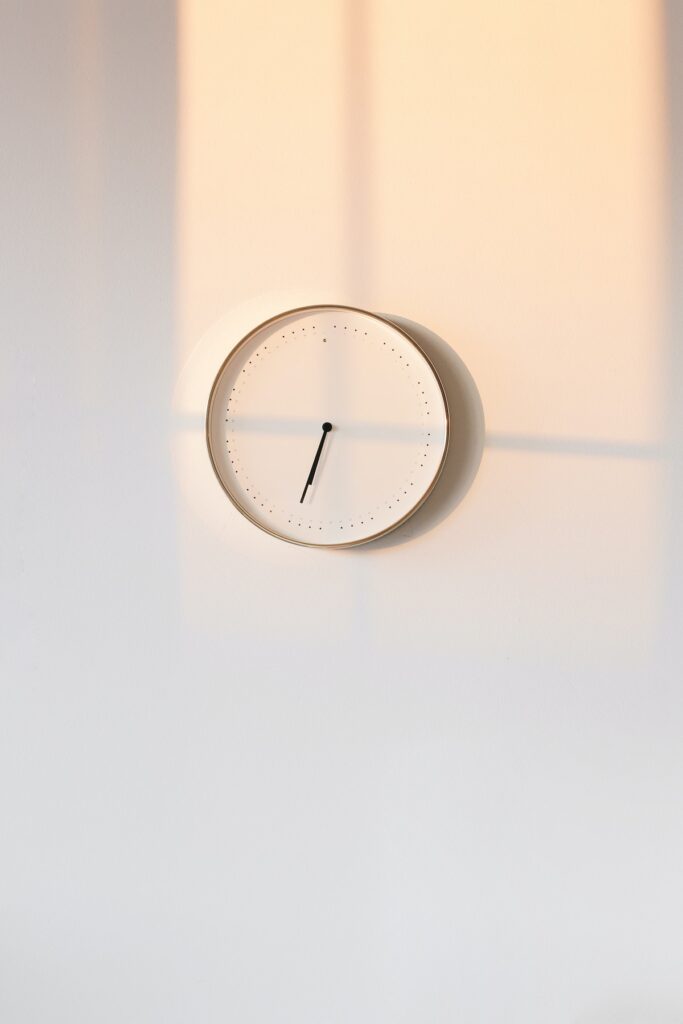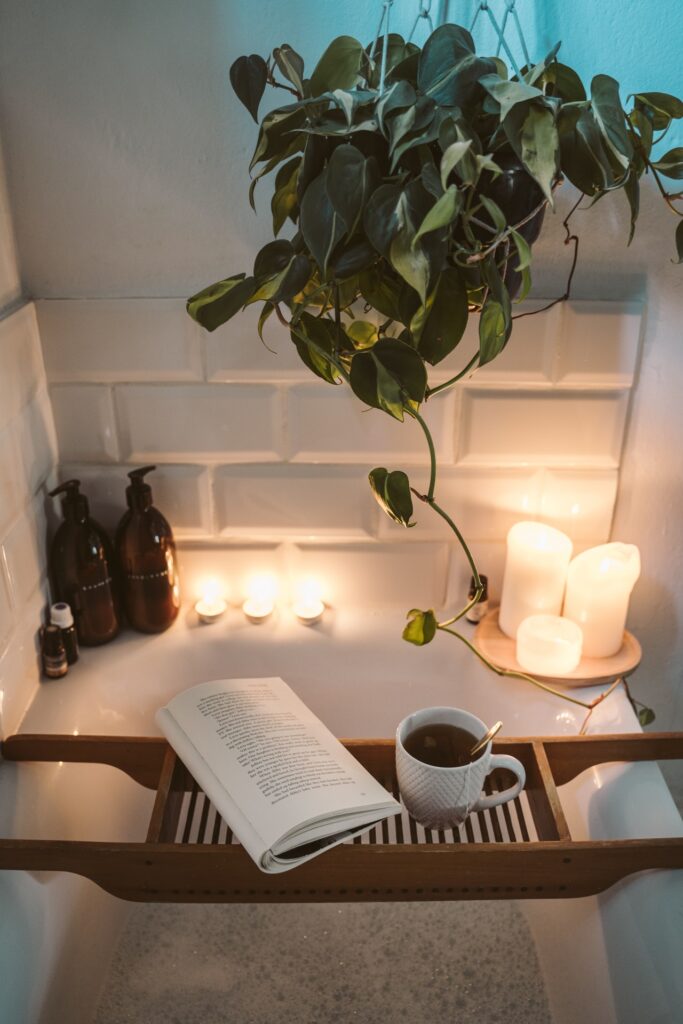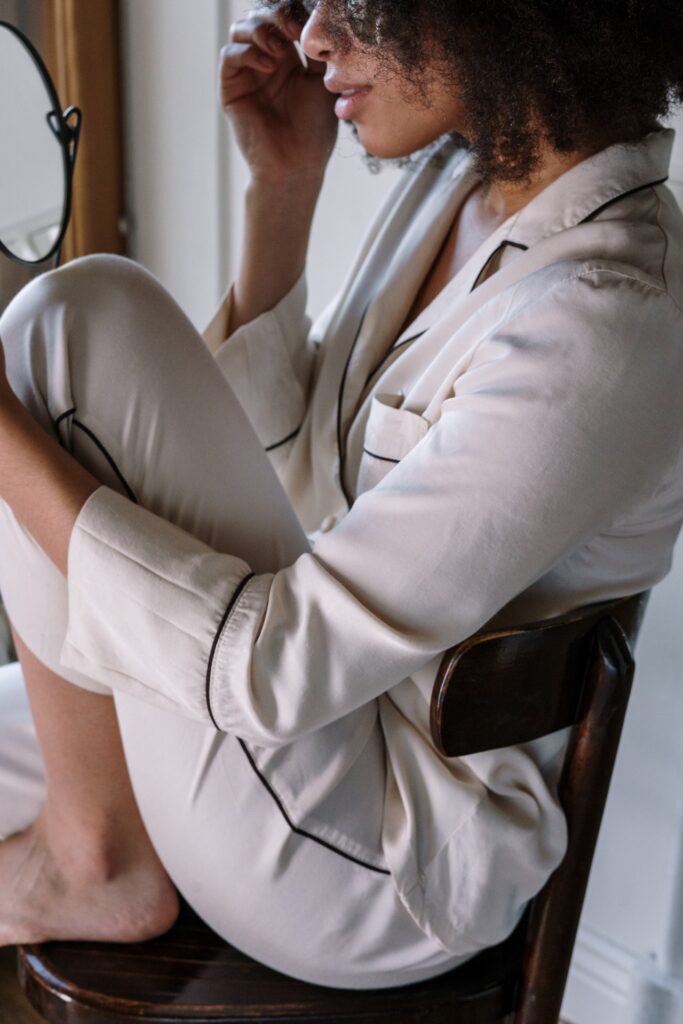THE BEST NIGHT TIME ROUTINE FOR REST & BEAUTY, ACCORDING TO EASTERN MEDICINE
Night Owls Beware

You’re probably familiar with the circadian rhythm, right? It’s the West’s version of our internal body clock. This clock responds to the lightness or darkness that we’re exposed to, and that helps guide our energy levels, sleep, eating habits and more. To keep our circadian clock running smoothly, we’re supposed to be awake during the day, and snooze when it’s dark out.
But the circadian rhythm isn’t the only body clock around. In fact, Traditional Chinese Medicine and Ayurvedic practice both follow body clocks that tell us the best times to eat, rest, exercise, be social, and more! Using these clocks, we’ve put together the best nighttime routine to help you wind down and restore your body and mind.
The TCM Body Clock
 In Traditional Chinese Medicine, the body clock is divided into 2 12 hour segments. Over a 24 hour period, our Qi (or lifeforce energy) moves throughout our body, switching to a new organ system every 2 hours. During these 2 hour sessions, the organ in question is the most energized and active organ in the body. As because TCM is all about keeping every part of your body in harmony, these organs can affect both your body and mind.
In Traditional Chinese Medicine, the body clock is divided into 2 12 hour segments. Over a 24 hour period, our Qi (or lifeforce energy) moves throughout our body, switching to a new organ system every 2 hours. During these 2 hour sessions, the organ in question is the most energized and active organ in the body. As because TCM is all about keeping every part of your body in harmony, these organs can affect both your body and mind.
The Ayurvedic Body Clock
Like other biological clocks, the Ayurvedic body clock tells us what times are best for activities like eating, sleeping, working, and socializing. Days are broken up into 4 hour sections that are dominated by 1 of the 3 energy types of doshas–vata, kapha, and pitta. Each dosha gets 2 of these 4 hour sections a day. Ayurvedic practitioners believe that by aligning our daily activities with this biological clock, we can become more in tune with our natural energies and feel better, body and soul.
Whether it’s TCM or Ayurveda, by keeping an eye on your Eastern Medicine body clock, you can maximize your nighttime routine to be the most restful, relaxing experience possible. Here’s the best evening routine, according to Eastern Medicine.
An Eastern Medicine Night Time Routine
Early Evening: Chill Out
 Between 5 and 7 pm, many of us start to wind down for the day. Work is probably over, it’s getting darker, and our energy levels might start to sink.
Between 5 and 7 pm, many of us start to wind down for the day. Work is probably over, it’s getting darker, and our energy levels might start to sink.
According to TCM, the Kidney is in charge during the early evening. We’re supposed to spend this time replenishing our energy, so happy hour or a pre-dinner gym session might not be the best choice. And if you’re noticing super low energy levels, it could be a sign that your Kidneys are in poor shape. This time is supposed to be for rest and relaxation, so switch your happy hour plans for a relaxing activity like restorative yoga or reading.
According to Ayurveda, we start to transition from the vata dosha to the kapha dosha around 6 pm. Kapha dosha is heavy, slow, and dull. It’s a sign that our bodies are starting to slow down in preparation for a good night’s rest. It’s another good reason not to wear yourself out in the early evening; instead, listen to your body and start to slow down.
Evening: Time For Self Care
Between 7 and 9 pm, it’s time to get serious about relaxing and unwinding. According to Ayurveda, our kapha dosha is starting to settle in, so we should try to reflect the slow, steady energy of kapha in our evening activities. That means self-care and hanging out with your family or roommates.
In the TCM tradition, 7-9 pm is when the Heart takes over and we start to process our emotions from the day. Try journaling as a way to be more mindful about your thoughts, feelings, and emotions from the day. You can also try meditating, taking a bath, or just chilling on the couch with a loved one. Now is the time to take your makeup off, change into some comfy clothes, and give yourself some R&R.
Nighttime: Get Ready For Bed
 From 9 pm to 11 you should be getting ready to go to bed. According to the TCM clock, this time is when your entire organ system is most active. It’s helping you to digest any emotions or food left over from the day so you can recharge while you’re sleeping.
From 9 pm to 11 you should be getting ready to go to bed. According to the TCM clock, this time is when your entire organ system is most active. It’s helping you to digest any emotions or food left over from the day so you can recharge while you’re sleeping.
It’s important to get to sleep within this window in order to let your body and mind repair itself from the next day. And if you wait too long to get to bed, you might have to notice a second wind of energy. Around 10 at night, pitta dosha starts to take over from kapha, replacing the slow, steady energy with the fiery heat of pitta dosha. That’s why it’s important to snuggle up in bed before pitta can take over and stop you from having a restful night.
If you’re a night owl and going to bed before 11 seems impossible to you, here are some tricks to reset your sleep schedule:
- Have a bedtime ritual that starts 1 hour before your ideal bedtime.
- Don’t watch TV or use your computer during this hour. The bluelight from our screens keeps us awake at night by decreasing the natural melatonin production that helps make us drowsy before bed. Use our digital detox pouch to make it easy to keep your hands off your devices.
- Get blue blockers for your computer and cell phone. Blue lights keep you up and can mess with your circadian rhythm so look for an app or program to help knock this out.
- Instead of watching TV or using your phone, take some time for self-care. Put on a soothing face mask, get in some journaling, or try gentle stretching and deep breathing.
- Still having trouble falling asleep? Try an ancient Ayurvedic remedy for sleeplessness. Sometimes called moon milk, you can make this yummy concoction with just a few ingredients. First, warm up a cup of milk mixed with Ashwagandha (a natural sedative), cardamom, nutmeg, and saffron. Add a teaspoon of ghee (clarified butter) and let the milk simmer on the stove for about 3 minutes. Take it off the heat for another minute, then add some honey to taste.
Night Owls Beware
Getting to bed after 11 pm isn’t great, according to Ayurveda, TCM, and Western Medicine.
According to TCM, this is when our bodies are supposed to be healing and renewing themselves after a long, hard day. If you get to bed between 1 and 3 am, your liver will be cranky with you, leading to physical weakness and emotional instability. In Ayurveda, the pitta dosha takes over. That means your body should be sleeping and your mind should be dreaming. And studies have shown that staying up too late is bad for your health; it can lead to high blood pressure, depression and anxiety, and even a risk of early death!
Here in the West, our culture is all about being “go, go, go” all the time. But giving your body and mind time to rest is one of the most important aspects of Eastern medicine. TCM and Ayurveda practitioners know that without enough rest and relaxation, our bodies and minds become weak and burnt out. So if you’re feeling like you need a little extra R&R these days, give this eastern medicine night time routine a try. Sweet dreams!
Newer
The Big Purge: How To Detox Your Life, Your Apartment, and Your Mind
Older
3 East Asian Herbs You Already Have In Your Pantry (And 3 You Need To Get ASAP)
Comments (0)
Leave a reply
You must be logged in to post a comment.




